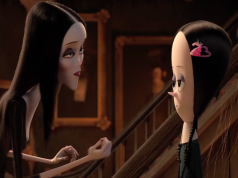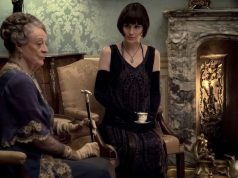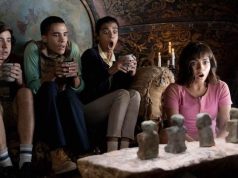The premise of “The Muppets” is that this hard, cynical world needs the gentle-but-firm humor and optimism of the Muppets. If you doubt this is true, I suggest you watch “The Muppets,” a movie that winningly makes the case for its own existence.
It’s also a movie that’s well aware of the Muppets’ current position in pop culture: fondly remembered by those of us who were kids in the ’70s and ’80s, but mostly unknown to today’s youngsters. (The “Sesame Street” Muppets don’t count.) Nostalgia plays a significant part in the film, both overtly — the plot centers on the Muppets’ attempt to remind people that they love the Muppets — and as subtext: we know that the human star and co-writer, 31-year-old Jason Segel, grew up with the Muppets and has long dreamed of making a movie with them. So while this is technically a children’s movie, the real target audience is the millions of adults who feel the same way Segel does.
But hey, kids, don’t worry if your parents drag you to see this. I bet you’ll like it almost as much as they do.
Segel plays Gary, a resident of Smalltown, U.S.A., who grew up watching “The Muppet Show” and the Muppet films of the early ’80s. (We don’t speak of “Muppet Christmas Carol,” “Muppet Treasure Island,” or “Muppets from Space.”) Gary’s brother, Walter (voiced by Peter Linz), shares his affinity for the fuzzy creatures, and looks suspiciously like one of them. While taking a tour of the Muppets’ dilapidated old theater in Los Angeles, Gary and Walter, accompanied by Gary’s long-suffering girlfriend Mary (Amy Adams), learn that the place will be torn down by a greedy oilman named Tex Richman (Chris Cooper) unless someone can come up with $10 million to save it.
You know what that means: Gary, Walter, and Mary must reunite the disbanded Muppets and help them put on a show! Segel and his co-writer, Nicholas Stoller (who directed him in “Forgetting Sarah Marshall”), have thus found an ingenious way of bringing the Muppets back to us without it feeling like someone at Disney just wanted to relaunch a cash cow. The movie acknowledges the group’s history, acknowledges that a lot of time has passed, and gives the characters a logical reason to reunite and do a version of their old TV show. And if this reunion of theirs should happen to spark renewed interest in the Muppets, well, they’d probably be willing to make more movies….
I’ll leave it for you to discover the specifics of how Kermit, Fozzie, Miss Piggy, Gonzo, and the rest get back together, what they’ve been doing in the meantime, what unresolved issues they have with each other. As in the Muppet capers of yore, there are road trips, montages, celebrity cameos, self-referential jokes, and musical numbers. The new songs were written by Bret McKenzie, from “Flight of the Conchords,” and abound with catchy tunes and rhyming wordplay. (The film’s director, James Bobin, worked on the “Conchords” TV show.) I particularly enjoyed the opening number, “Life’s a Happy Song,” if my inability to stop humming it is any indication. It’s unabashedly cheerful, cleverly self-aware without being smug, and simple, funny, and sweet — which means it sets the tone for the whole movie.
The humans and their subplots don’t add a lot, but they don’t detract much, either. When the Muppets are the focus (which is 90 percent of the movie), they radiate magical, unfiltered joy. These characters manage to be edgy and innocent, satiric and kind, grown-up and childlike, all at once. That’s how we remember them, and that’s how Segel, Stoller, Bobin, and the talented puppeteers present them. Most of the gags are genuinely funny and most of the sentiment genuinely endearing — enough so that when a joke misfires or a moment feels mawkish, we readily overlook it. I freely admit that I brought plenty of Muppet adoration with me into the theater. I was overjoyed when the movie earned it anyway.
A- (1 hr., 38 min.; )





